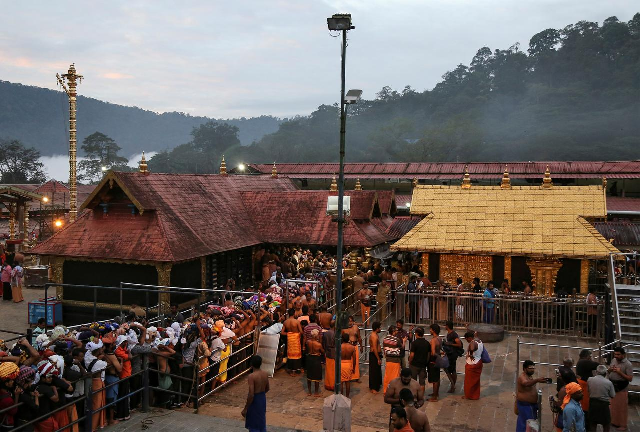
Upholding the right to equality of worship, a five-judge bench of the court last year ruled that the ban on women from entering the Sabarimala temple in the southern state of Kerala could not be considered an essential religious practice and should be lifted.
The decision had enraged conservative Hindu groups, sparked protests and drew the Supreme Court into the controversy in what is still a deeply religious country.
Many devotees refused to abide by the ruling and subsequent attempts by women to visit the temple were blocked.
The Justice that failed India
On Thursday, after examining about 60 petitions that sought a re-imposition of the ban, the court ruled that a larger, seven-judge bench would look at issues arising out of this case and three other pending cases of gender discrimination, in the minority Muslim and Parsi communities.
“The entry of women into places of worship is not limited to this temple only,” Chief Justice Ranjan Gogoi said while reading out the judgment.
Some lawyers and political analysts said the decision to scrutinise certain Hindu practices alongside those of other religions could pave the way for a public discussion on a uniform civil code, which is high on the agenda of Prime Minister Narendra Modi’s ruling Bharatiya Janata Party (BJP).
The BJP maintains that gender equality cannot be attained until the adoption of a uniform civil code, which is opposed by some Muslim groups since it would likely dilute sharia, the Islamic legal code.
“While the court cannot be faulted for doing what it is doing, but it definitely fulfills a major majoritarian demand. That if you’re trying to reform us (Hindus), reform them, too,” said political analyst Nilanjan Mukhopadhyay.
Pilgrimage Season
Last week, a Supreme Court bench headed by Gogoi awarded a bitterly contested religious site in the city of Ayodhya to Hindus, helping Modi deliver on a long-standing promise to build a temple where a 16th-century mosque once stood.
Babri Masjid verdict
In the ruling on the Sabarimala temple, the court has not issued a stay on its previous decision, effectively allowing all women to continue to visit the shrine, which is thronged by millions of devotees every year.
Those in favor of the ban argued it is necessary for rites related to the temple’s chief deity Ayyappan, who is considered eternally celibate.
In some parts of South Asia, menstruating women are commonly forbidden from entering temples or taking part in religious rites.
Since the Supreme Court’s ruling lifting the ban last September, about a dozen women attempted to enter the shrine, but only two succeeded in making it to its inner sanctum.
Kerala’s Communist-led government, which had initially sought to facilitate the entry of women, appeared to change its stance, instead of dissuading them from visiting the shrine to prevent protests.
Kerala police chief Loknath Behra said that more than 10,000 police would be deployed at Sabarimala for the pilgrimage season beginning on Saturday.










1732354127-0/Untitled-design-(3)1732354127-0-270x192.webp)






COMMENTS
Comments are moderated and generally will be posted if they are on-topic and not abusive.
For more information, please see our Comments FAQ